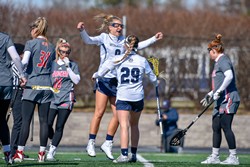As we close in on Thanksgiving and closer to the end in the NCAA football season, one issue has seemed to become prominent. This issue is responded to left and right in the online blogs and even major media outlets. It has brought legal analysts, head coaches, agents, players and fans into questioning and siding on the issue and has a substantial two-sided approach now.
This issue is “pay-for-play” college wages; or simply just salaries to NCAA athletes who partake in a sport for their university. I have formed a pretty decisive stance on the issue, of which you will gather as you read. But proponents of both sides have seemed to develop valid stances, as groups studying the issue have compiled studies and are seeking legal action.
The “pay-for-play” tactic has not been concretely committed to its terms, as the arguments are in the beginning stages. But proponents have laid out suggestions that would revolutionize the sport and change the NCAA into a profit-maximizing corporation. Suggestions include playing players their “worth” to their universities, which panels have suggested could be as much as $120,000 for the average NCAA football player and $265,000 for the NCAA basketball player.
These figures were put together by a group representing college athletes, who later stated that the change for salaries is necessary because these players generate so much revenue for their school, but cannot reap the benefits. Also, these millions of dollars generated cycle through school structures but do not get felt by the players, who may be living below the federal poverty line. Revenues for the players have been said to boost morale, help the school, aid the athlete and his family and without the wages, more harm is brought about. Because the players in the current system do not see any of the money they indirectly bring the school, it has led to instances where they accept money under-the-table and extravagant gifts from agents. This in theory would be eliminated upon the creation of a college wage system. Some arguers suggest that the players should also be allowed to delve into endorsements, and directly profit from them. This would mean that they would accept outrageous scholarship offers, make a salary and get paid through the endorsements they independently take part in.
Glenn Garvin’s “Pay College Athletes: Show Me the Money” article stated that there are extreme advocates for the salaries, including NBA coach Stan Van Gundy. He told a Miami Herald reporter that “not only should college athletes get paid, but there should be no salary cap…the sky’s the limit. They shouldn’t be distracted by having to go to class either, or even having to read or write.” This outrageous statement suggested that this system would benefit the players throughout their education and as they move on to professional sports. All in all, proponents suggest that this is the only reasonable solution to compensate athletes for all they’ve done for a program. Suggestions have been made to NCAA officials, who according to the players’ representatives, said changes are being considered.
Gaining much of my knowledge from two articles which caught my eye, CNN’s “Should College Players Get Paid” and the Miami Herald’s “Pay College Athletes: Show Me the Money,” I have realized the severe down side to such a proposition. This creation would do much more harm to our beloved college game and would hamper all aspects of the NCAA.
The average NFL player makes about $1.9 million per year, according to Bloomberg Businessweek. If the NCAA were to implement salaries, even salaries at a tenth of that NFL one, the University would be at a loss of paying millions of dollars per year to its players. For example, the University of Miami would need a payroll of $16 million to cover its 85 scholarship players for the season. This is quite a heavy burden for a school supposed to be set on sending its finances to improving the lot of the attending students.
Another issue is taxes. Currently athletes do not pay taxes on their scholarships because the sports programs are tax-exempt. This would change once salaries are bouncing around campus. The IRS would need to be involved in wages, facing the school and the player with another setback. The tax would then dig into the scholarship, and with high tuition prices these days, the tax could be mounted way in the thousands.
With this in mind, one could say that this proposition is asinine. In no way should the integrity of the game be compromised to make sure athletes are compensated. They joined their college rosters to gain the experience, not to make money. Never mind the fact that this system would jeopardize education. Players would no longer be focused on education and would be dead-set on ways to make more money instead of keeping up their GPA. Also, the game would be at risk of being labeled just like any other professional organization. With that, you can expect on-the-field efforts to go down for those being paid nicely, a sharp decline from the current, natural college sport spirit.
Legal issues, player disproval, player scandals, salary cap and salary-based incentive issues would surely arise from this. Sound good athletes? The sport you currently play would be sent to shambles. Sure, it’d be nice to make a quick buck because of your talent, but wouldn’t it be safer to know the integrity of the game is safe with the modern system? Our generous scholarships are already enough incentive for players to come out and play, as they should earn that scholarship value through hard work in the classroom as well. This happening is always hard to upkeep as it is, but would totally fall of the map with a salary system. Take a second to realize the spirit of college sports outweighs any sort of strange benefit of a “corporate” NCAA.



